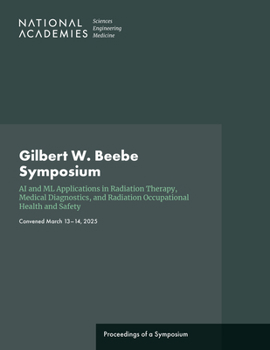Gilbert W. Beebe Symposium: AI and ML Applications in Radiation Therapy, Medical Diagnostics, and Radiation Occupational Health and Safety
On March 13-14, 2025, the Nuclear and Radiation Studies Board of the National Academies of Sciences, Engineering, and Medicine hosted the most recent Gilbert W. Beebe symposium, with the goal of discussing the applications of artificial intelligence (AI) and machine learning (ML) in the fields of radiation therapy, medical diagnostics, and occupational health and safety. Among other topics, symposium participants discussed the importance of data for AI readiness, multimodal modeling, digital twins, uncertainty quantification and trustworthiness, and bias and ethics as it applies to each of these fields.
The Gilbert W. Beebe Symposium was established by the Board on Radiation Effects Research (a predecessor of the Nuclear and Radiation Studies Board) in 2002 to honor the scientific achievements of the late Dr. Gilbert W. Beebe, a distinguished National Cancer Institute radiation epidemiologist who was one of the designers and key implementers of the epidemiology studies of Japanese atomic bomb survivors and a co-founder of the Medical Follow-up Agency. The symposium is used to promote discussions among scientists, federal staff, and other interested parties concerned with radiation health effects.





